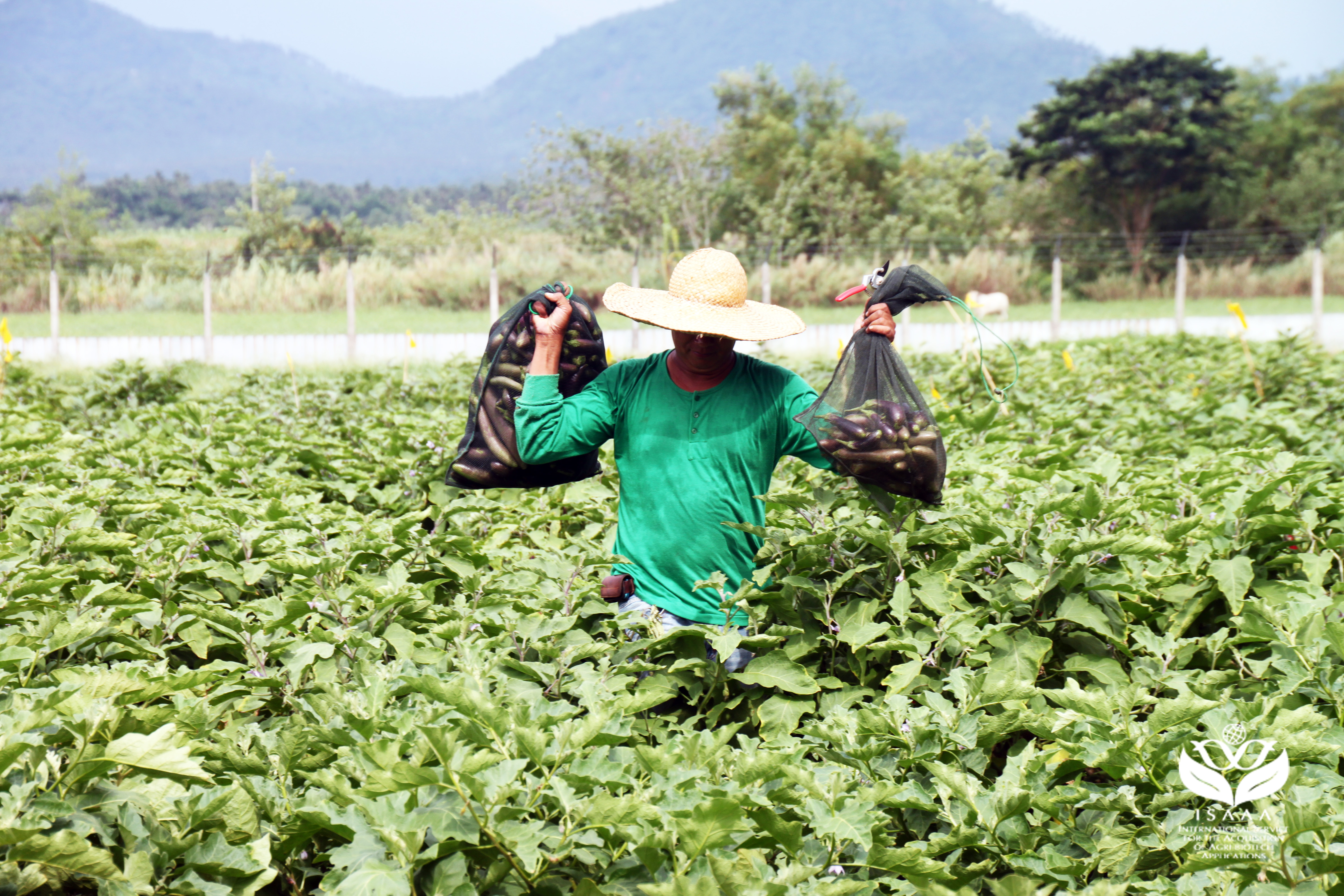Philippines Approves Bt Eggplant for Commercial Cultivation
| |
On October 18, 2022, the Bureau of Plant Industry of the Philippine Department of Agriculture granted the “Biosafety Permit for Commercial Propagation (No. 22-001 Propa)” of Bt Eggplant (Event EE-1) to the University of the Philippines Los Baños (UPLB) making the Philippines the second country in the world to allow the commercial propagation of the transgenic eggplant.

The approval was granted after the strict and comprehensive biosafety evaluations conducted by the Joint Assessment Group comprised of representatives from Competent National Authorities-Biosafety Committees, and the certification of the Event EE-1 as a Plant Incorporated Protectant (Group 11A Insecticide) by the Fertilizer and Pesticide Authority in the Philippines pursuant to the DOST-DA-DENR-DOH-DILG Joint Department Circular (JDC) No. 1, Series of 2021.
According to the University of the Philippines Los Baños, priority activities following the approval will include seed production, varietal registration, and farm demonstrations. An extensive growers’ education program will also be launched as part of the product stewardship activities within the following year. Dr. Lourdes Taylo, lead of the Bt Eggplant Project in the Philippines, said that the biosafety approval for commercial propagation allows them to scale up their operations and ensure the availability of the Bt eggplant seeds in the coming years.
The Bt eggplant contains a natural protein from the soil bacterium Bacillus thuringiensis which makes it resistant to eggplant fruit and shoot borer (EFSB), the most destructive pest of eggplant. The Bt protein only affects the EFSB worm and is safe for humans, farm animals, and non-target insects. "Bt eggplant is safe as it only targets EFSB. It is safe for humans, animals, and non-target insects," said Dr. Taylo in an earlier statement.
Prior to this approval for commercial propagation, the DA-BPI also approved Bt eggplant for direct use as food, feed, or for processing (21-078FFP) on July 21, 2021, affirming its safety for consumption. A 2016 study conducted in the Philippines on the impact of Bt eggplants to non-target arthropods also suggested that the Bt eggplant can be an integral component of Integrated Pest Management program particularly of the eggplant fruit and shoot borer, while dramatically reducing the dependence on conventional insecticides. Likewise, ex-ante impact assessments of Bt eggplant adoption have also revealed that the commercialization of Bt eggplant will increase marketable yield by 192% and reduce pesticide application per hectare by 48%. This means that the cultivation of Bt eggplants will incur lower production costs and ultimately lead to up to three-fold higher net farm incomes due to the combined effects of significantly reduced pesticide use and increased marketable fruit yields.
Eggplant remains as one of the major vegetable crops planted in the Philippines, according to the Philippine Statistics Authority. During the second quarter of 2022, eggplant production increased by 0.2%, equivalent to 106.87 thousand metric tons, from 106.66 thousand metric tons output in the same quarter of the previous year.
For more details about the approval, read the press release by UPLB or visit the Bt Eggplant resource pages by UPLB and ISAAA Inc.
| Newer Post | Archive | Older Post |
Science Speaks is ISAAA Inc.'s official blog. Weekly blog articles, authored by ISAAA writers, partners, and invited contributors, aim to help share, disseminate, and promote scientific knowledge and its vital role in achieving global agricultural sustainability and development. Your support to Science Speaks will help us achieve this goal. You can help us by donating as little as $10.

